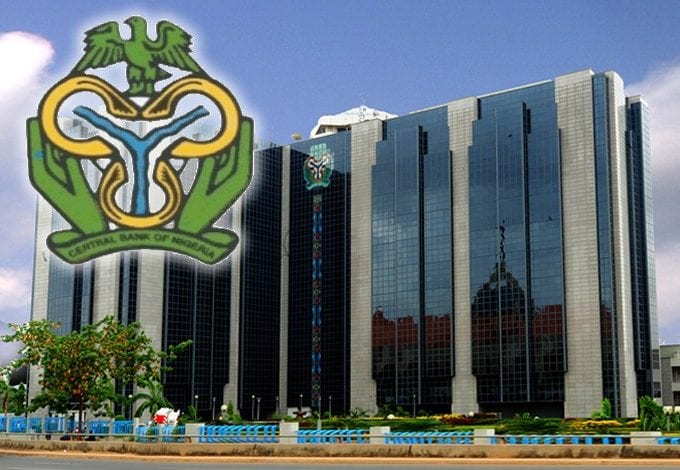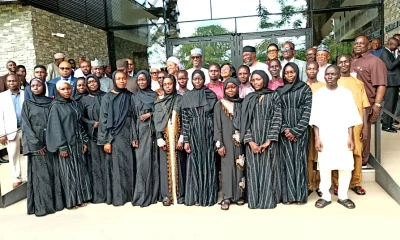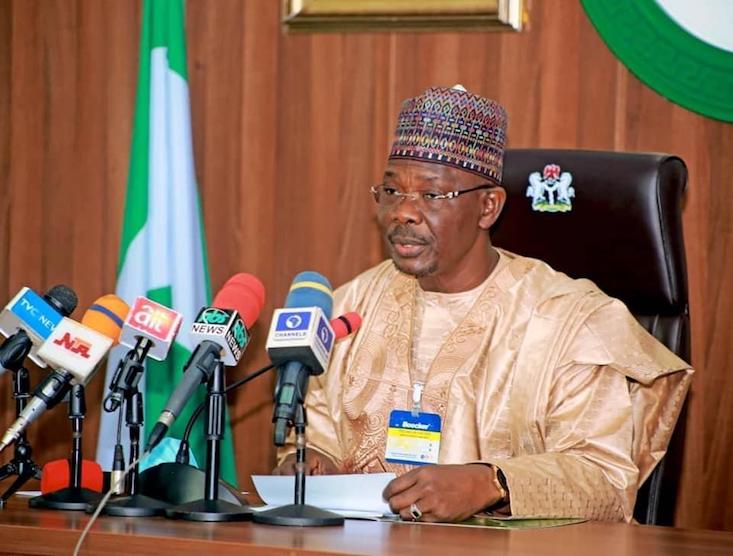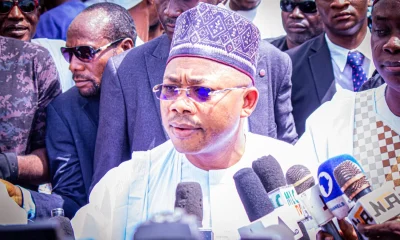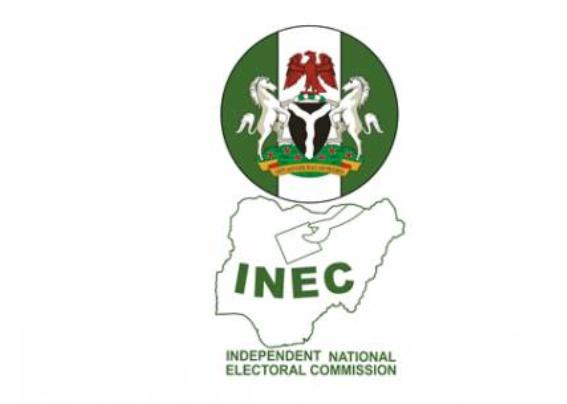Economy
CBN Unveils Non-Interest Guidelines for AGSMEIS, MSMEDF

By Tony Obiechina, Abuja
The Central Bank of Nigeria (CBN) has unveiled series of guidelines for Non-Interest Financial Institutions under its Agri-Business, Small and Medium Enterprise Investment Scheme (AGSMEIS), Micro, Small and Medium Enterprises Development Fund (MSMEDF), the Accelerated Agricultural Development Scheme (AADS) and seven other intervention schemes in its bouquet.
The issuance of the ten guidelines is sequel to plans disclosed by the Bank in its June 2020 meeting to unveil a framework that will integrate non-interest window in all its intervention programmes aimed at supporting businesses and households that have been impacted negatively by the corona virus (COVID-19).
The Bank, in the guidelines for the Operations of the Agri-Business, Small and Medium Enterprises Investment Scheme (AGSMEIS) for Non-Interest Financial Institutions (NIFIs) issued in Abuja on Tuesday, July 14, 2020, revealed the creation of a Fund to be known as ‘AGSMEIS Non-Interest Fund’ to be domiciled in a dedicated account with the CBN.
In a statement by the Apex Bank on Tuesday, the guidelines stipulate that each Non-Interest Deposit Bank (full-fledged or window) is to set aside 5% of its profit after tax (PAT) annually as contribution to the Fund. It added that each Non-Interest Deposit Bank is also to transfer its contribution to the CBN not later than 10 working days after the Annual General Meeting (AGM) of the participating bank.
Eligible activities under the Scheme are businesses across the agricultural value chain, covering production, inputs supply, storage, processing, logistics and marketing; MSMEs in the real sector including manufacturing, mining and petrochemicals; MSMEs in the service sector including information and communication technology (ICT) and the creative industry as well as other activities as the Central Bank of Nigeria (CBN) may determine from time to time.
According to the guidelines, financing under the Scheme will be for start-ups, business expansion or revival of ailing companies and shall be in compliance with provisions of BOFIA (1991) as amended and the principles underpinning operations of NIFIs.
The MSMEDF for NIFIs guidelines are aimed to channel low return funds to the MSME sub-sector of the Nigerian economy through participating Financial Institutions (PFIs) to enhance access by MSMEs to financial services. Similarly, the non-interest guidelines for the AADS are aimed at engaging a minimum of 370,000 youths in agricultural production across the country between now and 2023, in order to reduce unemployment among the youths in the country.
While the specific objectives of the MSMEDF for NIFIs are to increase the productivity and output of microenterprises, job creation and engender inclusive growth, those of the AADS are to increase agricultural production towards food security, job creation and economic diversification.
The non-interest guidelines for the AADS, which is targeted at Nigerian youth between 18 and 35 years, seek to promote interaction among state governments, the CBN and other stakeholders in the agricultural value chain in each state to enhance job creation in the agricultural sector, with focus on two crops where States have comparative advantage, among others.
Other non-interest guidelines issued by the CBN on Tuesday were for the Anchor Borrowers’ Programme: the Credit Support for the Health Sector; Intervention in the Textile Sector; the Real Sector Support Facility (RSSF) revised guidelines (V3); the Real Sector Support Facility (RSSF) through CRR; Non-Oil Export Stimulation Facility (ESF) and the Creative Industry Financing Initiative (CIFI).
Speaking on the guidelines issued by the Bank, the Director, Corporate Communications Department, Isaac Okorafor said the establishment of the non-interest windows had opened more opportunities for eligible beneficiaries to be considered for funding under all the Bank’s initiatives.
Economy
Nigeria’s Inflation Hit 33.20% in March, says NBS

The National Bureau of Statistics (NBS) says Nigeria’s headline inflation rate increased to 33.20 per cent in March 2024.
The NBS said this in its Consumer Price Index (CPI) and Inflation Report for March, which was released in Abuja on Monday.
According to the report, the figure is 1.50 per cent points higher compared to the 31.
It said on a year-on-year basis, the headline inflation rate in March 2024 was 11. 16 per cent higher than the rate recorded in March 2023 at 22.04 per cent.
In addition, the report said, on month-on-month basis, the headline inflation rate in March 2024 was 3.02 per cent, which was 0.10 per cent lower than the rate recorded in February 2024 at 3.12 per cent.
“This means that in March 2024, the rate of increase in the average price level is less than the rate of increase in the average price level in February 2024.”
The report attributed the increase in the headline index for March 2024 on a year-on-year basis and month-on-month basis to increase in some goods and services at the divisional level.
It said these increases were observed in food and non-alcoholic beverages, housing, water, electricity, gas, and other fuel, clothing and footwear, and transport.
Others, it said, were furnishings, household equipment and maintenance, education, health, miscellaneous goods and services, restaurants and hotels, alcoholic beverage, tobacco and kola, recreation and culture, and communication.
It said the percentage change in the average CPI for the 12 months ending March 2024 over the average of the CPI for the previous corresponding 12-month period was 27.13 per cent.
“This indicates a 6.76 per cent increase compared to 20.37 per cent recorded in March 2023”, it said.
The report said the food inflation rate in March 2024 increased to 40.01 per cent on a year-on-year basis, which was 15.56 per cent higher compared to the rate recorded in March 2023 at 24.45 per cent.
“The rise in food inflation on a year-on-year basis is caused by increases in prices of Garri, Millet, Akpu (uncooked fermented, which are under bread and cereals class), Yam Tuber, and Water Yam.
“Others are Dried Fish Sadine, Mudfish Dried, Palm Oil, Vegetable Oil, Beef Feet, Beef Head, Liver, Coconut, Water Melon, Lipton Tea, Bournvita, and Milo”, NBS said.
It said on a month-on-month basis, the food inflation rate in March was 3.62 per cent, which was a 0.17 per cent decrease compared to the rate recorded in February 2024 at 3.79 per cent.
“The fall in food inflation on a month-on-month basis was caused by a decrease in the average prices of Guinea corn flour, Plantain Flour etc (under Bread and Cereals class); Yam, Irish Potato, and CocoYam.
“Others are Titus fish, Mudfish Dried, Lipton, Bournvita, and Ovaltine”, it said.
The report said that “all items less farm produce and energy’’ or core inflation, which excludes the prices of volatile agricultural produce and energy, stood at 25.90 per cent in March on a year-on-year basis.
“This increased by 6.26 per cent compared to 19.63 per cent recorded in March 2023.’’
“The exclusion of the PMS is due to the deregulation of the commodity by removal of subsidy.”
It said the highest increases were recorded in prices of bus journey within the city, actual and imputed rentals for housing, consultation fee of a medical doctor, etc.
The NBS said on a month-on-month basis, the core inflation rate was 2.54 per cent in March 2024.
“This indicates a 0.37 per cent increase compared to what was recorded in February 2024 at 2.17 per cent.”
“The average 12-month annual inflation rate was 22.26 per cent for the 12 months ending March 2024, this was 5.04 per cent points higher than the 17.22 per cent recorded in March 2023”, it said.
The report said on a year-on-year basis in March 2024, the urban inflation rate was 35.18 per cent, 12.11 per cent higher compared to the 23.07 per cent recorded in March 2023.
The report said on a year-on-year basis in March 2024, the rural inflation rate was 31.45 per cent, which was 10.37 per cent higher compared to the 21.09 per cent recorded in March 2023.
“On a month-on-month basis, the rural inflation rate was 2.87 per cent, which decreased by 0.20 per cent compared to February 2024 at 3.07 per cent’’, it said.
On states’ profile analysis, the report showed that in March, all items inflation rate on a year-on-year basis was highest in Kogi at 39.97 per cent, followed by Bauchi at 38.34 per cent, and Kwara at 38.10 per cent.
It, however, said the slowest rise in headline inflation on a year-on-year basis was recorded in Borno at 25.78 per cent, followed by Benue and Taraba at 28.12 per cent, and Katsina at 28.32 per cent.
The report, however, said in March 2024, all items inflation rate on a month-on-month basis was highest in Zamfara at 3.90 per cent, followed by Abia at 3.89 per cent, and Ondo at 3.75 per cent.
“Borno at 1.46 per cent, followed by Yobe at 1.84 per cent and Adamawa at 1.85 per cent recorded the slowest rise in month-on-month inflation”, NBS said.
The report said on a year-on-year basis, food inflation was highest in Kogi at 48.46 per cent, followed by Kwara at 46.18 per cent, and Akwa Ibom at 45.18 per cent.
“Nasarawa at 33.76 per cent, followed by Borno at 34.28 per cent and Bauchi at 34.38 per cent recorded the slowest rise in food inflation on a year-on-year basis’’, it said.
The report, however, said on a month-on-month basis, food inflation was highest in Abia at 5.17 per cent, followed by Cross River at 5.14 per cent, and Bayelsa at 4.75 per cent.
“Cross River stood at 1.59 per cent, followed by Yobe at 2.08 per cent and Adamawa at 2.12 per cent, recorded the slowest rise in inflation on a month-on-month basis”, it said. (NAN)
Economy
Naira Makes Huge Recovery, Gains 7.2% Against Dollar
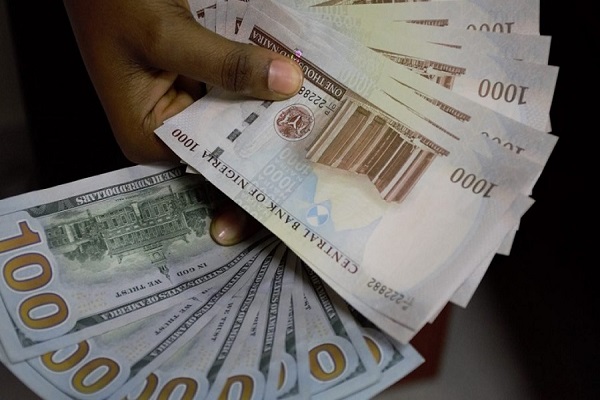
The Naira on Friday experienced huge appreciation at the official market, trading at N1,142.38 to the dollar.
Data from the official trading platform of the FMDQ Exchange, a platform that oversees the Nigerian Autonomous Foreign Exchange Market (NAFEM), revealed that the Naira gained N88.
23.This represents a 7.16 per cent gain when compared to the previous trading date on Monday, April 8, exchanging at N1,230.
61 to a dollar before the Sallah holiday.The total daily turnover increased to $281.34 million on Friday up from $125.55 million recorded on Monday.
Meanwhile, at the Investor’s and Exporter’s (I&E) window, the Naira traded between N1,265 and N1,100 against the dollar.
Economic experts have continued to praise both fiscal and monetary policies of President Bola Tinubu’s administration responsible for the steady Naira appreciation.
The CBN, during its policy meetings held in February and March, implemented a total of 600 basis points in interest rate increases.
This helped tackle dollar scarcity, reduced volatility, and decreased reliance on parallel markets. (NAN)
Business News
Geregu Power Earns N50.4bn From Electricity Sales, Capacity Charges

By Tony Obiechina, Abuja
Geregu Power Plc has generated N50.4bn on electricity sales and capacity charges to Nigerians in the first quarter of 2024.
The power company which is the first listed power company of the Nigerian Exchange Ltd disclosed the performance in its Q1, 2024 financial statement.
The company grew its Q1 revenue by 225 per cent from N14.
2bn in 2023 to N50. 4bn in 2023.A breakdown reveals that Geregu Power sold energy worth N31bn and received N19bn as revenue from capacity charge.
Recall that the power company posted an annual revenue of N82.9bn in the full year of 2023 but it has covered half of the amount in Q1.
The revenue was above the company’s forecast for Q1 2024 when it projected its revenue to rise to N31.24bn.
Geregu Power recorded a profit before tax of N21.9bn up from the N5.3bn recorded in Q1 of last year, reflecting 307.8 per cent growth.
During the period underreview, the company saw its profit after tax rose by 307.3 per cent to N14.46bn from N3.54bn recorded in Q1 of last year. In the full year 2023, the company made N16.1bn net profit.
The net profit was above the company projection of N5.5bn.
Geregu Power took an income tax charge of N7.43bn, up from the N1.8bn in Q1 2023. The tax charges were higher than the N2.7bn projected for Q1 2024.
The company also spent N21.5bn on the cost of sales involving gas supply and transportation, up from the N6.6bn spent on gas supply and transportation in Q1 2023.

